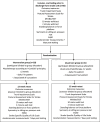Embodiment, tailoring, and trust are important for co-construction of meaning in physiotherapy after stroke: A qualitative study
- PMID: 35306716
- PMCID: PMC9539856
- DOI: 10.1002/pri.1948
Embodiment, tailoring, and trust are important for co-construction of meaning in physiotherapy after stroke: A qualitative study
Abstract
Background and purpose: Physiotherapy, with an emphasis on high intensity, individually tailored, and person-centered treatment, is an effective route for recovery after a stroke. No single approach, however, has been deemed paramount, and there is limited knowledge about the patient experience of assessment, goal-setting, and treatment in physiotherapy. In this study, we seek to report patient experiences of I-CoreDIST-a new physiotherapy intervention that targets recovery-and those of usual care. The purpose is to investigate how individuals with stroke experience the bodily and interactive course of physiotherapy during their recovery process.
Methods: A qualitative study, nested within a randomized controlled trial, consisting of in-depth interviews with 19 stroke survivors who received either I-CoreDIST or usual care. Data were analyzed using systematic text condensation, and this analysis was informed by enactive theory.
Results: Interaction with the physiotherapist, which was guided by perceived bodily changes, fluctuated between being, on the one hand, formal/explicit and, on the other, tacit/implicit. The experiences of participants in the intervention group and the usual care group differed predominantly with regards to the content of therapy sessions and the means of measuring progress; divergences in levels of satisfaction with the treatment were less pronounced. The perception of positive bodily changes, as well as the tailoring of difficulty and intensity, were common and essential features in generating meaning and motivation. An embodied approach seemed to facilitate sense-making in therapy situations. In the interaction between the participants and their physiotherapists, trust and engagement were important but also multifaceted, involving both interpersonal skills and professional expertise.
Conclusion: The embodied nature of physiotherapy practice is a source for sense-making and meaning-construction for patients after a stroke. Trust in the physiotherapist, along with emotional support, is considered essential. Experiencing progress and individualizing approaches are decisive motivators.
Keywords: enactive theory; interaction; physiotherapy; qualitative research; stroke.
© 2022 The Authors. Physiotherapy Research International published by John Wiley & Sons Ltd.
Conflict of interest statement
The authors declare no conflict of interest.
Figures
References
-
- Arntzen, E. C. , Oberg, G. K. , Gallagher, S. , & Normann, B. (2019). Group‐based, individualized exercises can provide perceived bodily changes and strengthen aspects of self in individuals with MS: A qualitative interview study. Physiotherapy Theory and Practice, 37, 1–16. - PubMed
-
- Arntzen, E. C. , Straume, B. K. , Odeh, F. , Feys, P. , Zanaboni, P. , & Normann, B. (2019). Group‐based individualized comprehensive core stability intervention improves balance in persons with multiple sclerosis: A randomized controlled trial. Physical Therapy, 99(8), 1027–1038. 10.1093/ptj/pzz017 - DOI - PMC - PubMed
-
- Bernhardt, J. , Godecke, E. , Johnson, L. , & Langhorne, P. (2017). Early rehabilitation after stroke. Current Opinion in Neurology, 30(1), 48–54. - PubMed
-
- Brinkmann, S. , & Kvale, S. (2015). InterViews: Learning the craft of qualitative research interviewing (3rd ed.). Sage.
Publication types
MeSH terms
Grants and funding
LinkOut - more resources
Full Text Sources
Medical


